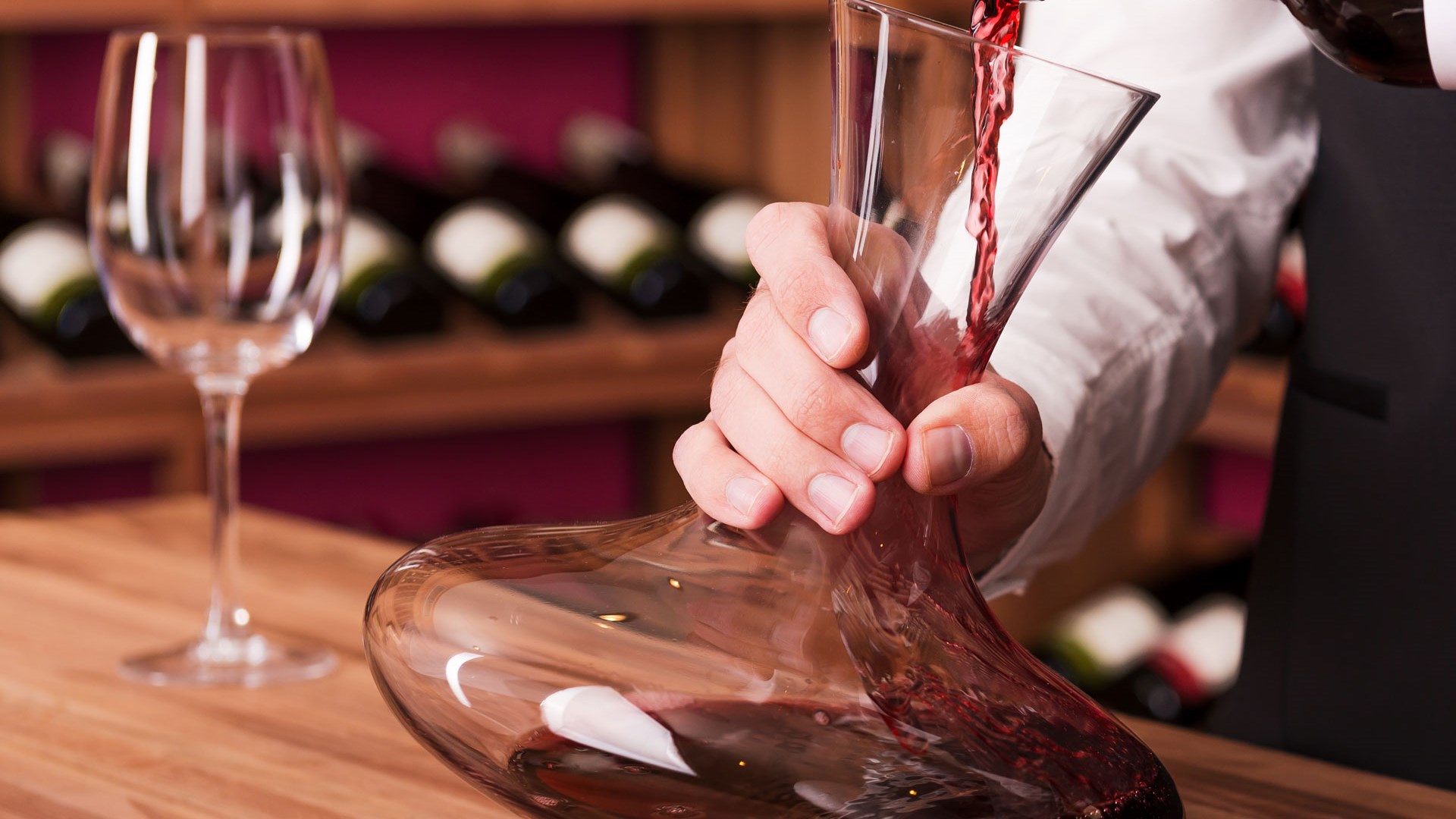Article - RareWine Academy
When Should You Decant Your Wine?
Should you decant the wine at all? How do you decant correctly? Should all wines be decanted? Questions are many! Here you will find answers to the most common questions...
Primarily; many wines will benefit from being decanted, one way or another. This can be both if they have formed sediment over the years, or that they are opened a little too early in regard of its age. Here we will take a closer look at the different ways to decant wine.
Decanting comes from the term: ‘to decant’, which means to pour the wine from its original bottle into another container, usually of glass. Especially in England, people have always had a great tradition of drinking older wines, which is why they also have a great tradition of decanting.
There are primarily two reasons for decanting the wine; either to separate the pure wine from the precipitate in the bottle, or that the wine should be oxygenated.
Often you have two names for decanters; either a ‘decanter’ which is for aerating the wine or a Carafe, which is for pouring wine over without it being aerated.
Avoid Sediment When Pouring Wine
It is perfectly normal to find sediment in most older wines. There are different elements in the wine that bind to each other and form sediment in the bottle. This happens especially with old wines, but also if the producer has chosen not to filter the wine before bottling. With any filtration, wine will lose a little of the taste, so in that way it is a sign of quality when there is a sediment in the wine.
The correct procedure would be to place the bottle upwards a few days before it is to be drunk. Thereby, the wine settles itself before you go to decant.
When the wine is to be opened, it must be done without shaking the bottle. Once the bottle has been opened, it should be poured slowly into a carafe with a soft inside. It is recommended to use a so-called "duck-shaped" carafe.
 Pour gently and use a so-called "duck-shaped" carafe.
Pour gently and use a so-called "duck-shaped" carafe.
The wine is decanted into the clean carafe, preferably with a light surface behind, so you can see when the precipitate comes up in the bottleneck and you have to stop pouring. By this, you have purified the wine and can serve a clear wine to your guests.
Oxidation Of Wine By Decantation
The second reason to pour over or rather decant wine is to oxygenate it. This is done primarily to cheat the wine a little older. The optimum will always be to store the wine until it is optimally ready to drink, but many wines are drunk before, and then oxygenation is essential.
By oxygenating the wine, you achieve that aromas that have been closed inside the wine, are opened up and contribute with more flavor.
The tannin in the wine will also benefit from oxygenation, as it will appear more rounded and milder. Many wines will benefit from a carafe ride, to appear even more rounded and balanced when you serve them to your guests.
These Wines Must Be Poured Over
- All older wines that have formed a precipitate. Especially wines from Bordeaux, Burgundy or Barolo more than 10 years old.
- Port wine, especially Vintage Port, which has been stored in the bottle for more than 15 years. When they are more than 50 years old, there may be several inches of sediment in the bottle.
These Wines Must Be Decanted:
- Bordeaux wines that are younger than 15 years or wines in the same style and expression, fx cabernet sauvignon from California.
- Burgundy red, from 1st cru level and up and less than 7 years old.
- Barolo and Barbaresco which are younger than 10 years old will also gain character if decanted.
- Chardonnay white wines, for example from Burgundy and younger than 5 years.
Should Sparkling Wine Be Decanted Or Poured Over?
The short answer will be no, but it is not that simple after all. Most sparkling wines are made to be drunk straight from the bottle and show themselves best in that way. As with much else in the world of wine, there are of course a few exceptions where gentle decantation can do wonders. Otherwise, most bottles will benefit if they are opened a few hours in advance.
A producer like Gosset does not let his wines undergo malolactic conversion, so they generally win by a lighter decanting. A young version of great Champagne, such as Cristal or Salon, will also open up more with a gentle decanting. If in doubt, do not decant sparkling wine, but if you have experience in tasting the best Champagnes, then it may make sense to experiment with a gentle decanting of the youngest champagnes.
